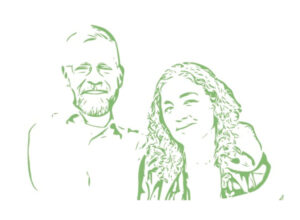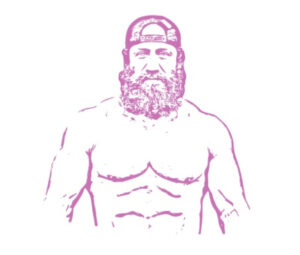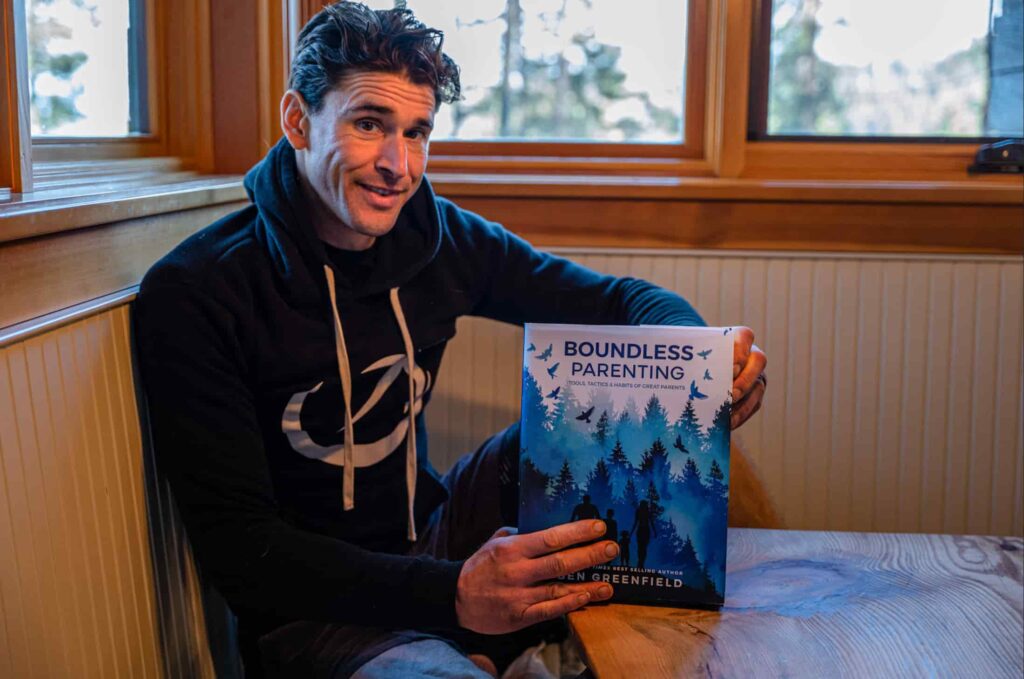February 28, 2023
Whew, I’m a bit exhausted!
After two years of interviewing some of the top parents on the planet…
…. from crazy macho Alpha dads like the controversial “Liver King” and Spartan race founder Joe DeSena…
…to peaceful backwoods, unschooling, off-grid gardeners and homemakers (including my children’s wilderness survival instructors and my own wife Jessa)…
…to outside-the-box thinking fitness icons like Kelly and Juliet Starrett, Paul Chek, and the Vega “Fat Fueled Family”…
…to a host of other entrepreneurs, billionaires, single moms and dads, my own dear parents, pastors, education experts, legacy builders, wealth managers and many others who have created impactful, happy and resilient children…
…I’ve finally put the finishing touches on a 600+ page parenting book that is the most comprehensive parenting book that exists. It’s like the blueprint for raising a human.
It’s called Boundless Parenting: Tools, Tactics & Habits of Great Parents, and it’s kind of like Tim Ferriss’s Tools of Titans or Tribe of Mentors, but for parenting. In other words, this is a book that takes the best of the best of raising babies, children and teenagers, decoding discipline, planning education, creating legacy, meaning and purpose, diet, nutrition, fitness, tackling the in-and-out daily nitty-gritty’s of being a successful parent with practical tips from the trenches and tons more.
Basically, it’s the book I wish I had existed when I first became a parent, and thank goodness, Boundless Parenting is now officially done and about to be unleashed on the world.
This book has been a labor of love, and I’m beyond excited to see it finally come to fruition. But that’s not all – I wanted to give you a little preview of what you can expect from the book. As a bonus, I’ve selected five of my favorite Q&As with some of the epic parents featured in the book to share with you. These parents come from all walks of life and have faced a variety of challenges, but they all share a common goal: to be the best parents they can be. I think their insights and experiences will be both inspiring and relatable, and I hope they will give you a taste of what you can expect from the book as a whole.
So without further ado, here are five of my favorite Q&As from a few of the select parents from within book…
1. Joey & Berit Coleman
Joey Coleman specializes in helping companies keep their customers and employees.
As an award-winning speaker, Joey shares his First 100 Days® methodology for improving customer and employee experiences with audiences and organizations around the world, including Whirlpool, Volkswagen Australia, and Zappos.
Joey’s best-selling book, Never Lose a Customer Again, is a guide to how to turn any sale into a lifelong customer. Never Lose an Employee Again, which will be released in March 2023, offers a framework and guide for long-term employee retention and engagement.
Berit Coleman is an entrepreneur, writer, and editor. Her first two businesses included a web development firm and the first co-working space in the U.S. Recently, she transitioned to collaborative writing and editing for women who are at the top of their fields and looking to amplify their voices through published books. Joey and Berit live in Boulder, Colorado, with their two sons.
Q: What traditions, habits, routines, or rituals are most important, memorable, or formative for your family?
A: Our family has established many rituals and traditions. Since we travel often and have lived in multiple locations over the years, these rituals and traditions provide grounding and stability in an otherwise fluid and somewhat uncertain world. Here are some examples of the rituals/traditions we have implemented throughout the years:
Weekly board game night: We play full out and don’t “let” the boys win—although, they often win by their own right. We have dozens of board games and, each week, we rotate who gets to select the game. While the boys sometimes play as a team, they often play independently.
Nightly dinner: We make a point to gather around the dinner table almost every night, with the only exceptions being when a parent is traveling or we go on a date night. The conversation during the meal is active and wide-ranging. We encourage the boys to share their perspectives and we often field a number of questions about why certain things operate the way they do—for example, why some people think certain ideas or act in certain ways.
Quiz bowl: Several nights per week we have a “quiz bowl” where we go around the table and ask trivia questions. One of the parents is usually the quizmaster, while the other family members play for the school of their choosing: a college, university, or a fictional school, like Hogwarts. The questions cover a wide range of topics and often stack in difficulty, with the youngest answering first and the following contestants being prohibited from repeating any answers previously shared by other players. Sample questions might include the following: What are the names of two planets? What are three animals that live in the ocean? Who are two professors that teach at Hogwarts? Can you name four countries?
“Best, worst, weirdest”: Multiple times per week at dinner we ask the boys a three-part question: “What was the best part of your day? The worst part of your day? The weirdest part of your day?” These answers provide wonderful insight into their perspectives and what matters most to them. We often get to hear the backstory about the experiences that contributed to their assessment of best, worst, or weirdest.
Nightly bedtime stories, followed by independent reading time for each boy: Right now, we read a mix of chapter books—which we are trying to get our boys excited about—and picture books, which they prefer to read because they are easier to understand.
Travel: We want to raise global citizens; as a result, we have taken the boys to visit almost a dozen countries and over 25 states in the U.S.
5-minute journal for kids: We use this as a daily journaling process for the boys, occasionally asking them if they want to share with us what they’ve written.
Saturday morning cartoons: This provides quality time for the boys and Daddy, while Mommy sleeps in!
Sunday morning brunch: Berit makes family brunch and the boys help to set and clear the table (this responsibility extends to nearly every family meal).
Christmas holidays with the extended family: Joey has six siblings, most of whom are married and have children, which means that Christmas usually involves more than 20 people enjoying the holiday festivities under the same roof.
Family vacations: We regularly vacation as a nuclear family and also vacation with both sets of grandparents, aunt/uncles/cousins, and with “chosen” family/friends.
2. Tim Corcoran & Jeannine Tidwell
 Tim Corcoran is a leader of men’s groups, holistic rites of passage for boys, and wilderness quests, guiding and initiating men and boys into a new paradigm of the mature masculine.
Tim Corcoran is a leader of men’s groups, holistic rites of passage for boys, and wilderness quests, guiding and initiating men and boys into a new paradigm of the mature masculine.
Since 1999, Tim has dedicated his life to consciously furthering this vision of living in balance with the earth, community, family, and self.
As the founder of Purpose Mountain, Tim offers Nature-Based Purpose Guidance and Wilderness Vision Quests to support people with a love for nature who feel a deep yearning to discover their purpose and find their place in life. The quests are 10-day, in-person immersions that facilitate a deeper understanding and connection to nature.
Tim also serves as co-director of Twin Eagles Wilderness School, an organization he founded with his wife, Jeannine Tidwell. Twin Eagles Wilderness School is dedicated to facilitating deep nature connection mentoring, cultural restoration, and inner tracking. Jeannine is a mother, mentor, program leader, and coach. She offers rites of passage programs for girls and young women. Tim and Jeannine live in Sandpoint, Idaho, with their two sons.
Q: What traditions, habits, routines, or rituals are most important, memorable, or formative for your family?
A: A few examples that stand out include:
- We spend regular time together as a family outside in nature, which has been one key foundation of our children’s upbringing. We bring our experiences outside alive via naturalist skills, wildlife tracking, knowledge of wild edible and medicinal plants, wilderness survival skills, and birding. We also have annual routines of harvesting huckleberries, serviceberries, and morel mushrooms.
- We have trained our sons from an early age in the arts of traditional archery hunting, including making their own bows. We have regular adventures in the wild places of our home bioregion, here in northern Idaho.
- We host an annual Ancestor Supper, for which we bring the community together to honor our ancestors.
- We have a weekly family night, which is a time for us to gather and share what is real in our hearts while managing the logistics of family life and making space for each person’s voice to be heard.
- We go on regular trips to see the grandparents and foster those relationships.
- We schedule and implement developmentally appropriate rites of passage for our sons.
- We have rituals that mark the change of seasons, including seasonal foraging and hunting. For example, in the fall, we go ricing for wild rice in our canoe. This big event for our family marks the fall equinox. Fall also brings hunting rituals and ceremonies. We celebrate the winter solstice with a big bonfire and Ancestor Supper.
Tim takes River and Forrest on an annual Father-Son Wilderness Trip, sometimes with friends or the boys’ uncles. Below is Tim’s reflection about one trip from the fall of 2017:
“Just returned from an epic four-day canoe trip up to Upper Priest Lake with my sons, River (11) & Forrest (8), and my brother, Joshua Walters. We canoed in from the north end of Priest Lake, up the thoroughfare, all the way to the north end of Upper Priest Lake— about six miles.
The smoke was thick, due to all the fires in nearby Montana, Washington, and British Columbia, which added a surreal quality to the wilderness experience. We were all in seventh heaven, fishing constantly, exploring to our hearts’ content, and eating amazing food, as we gave ourselves to the sacred masculine archetype embodied in this pristine wilderness, all alongside immature fart jokes—the sacred and profane, side by side. I have literally never seen my sons happier than they were these days. The bonding with nature, with one another, with the sacred, and with ourselves was unparalleled.
We discovered the epic old growth forest north of Upper Priest Lake, which is filled with 500-year-old western red cedars, maidenhair ferns, pacific yew, grizzly bears, caribou, and mountain lions. We watched a sunset with a great horned owl. We discovered caves. We caught bull trout, cutthroat trout, brook trout, and perch. We tracked bears, deer, mink, and beaver. We harvested birch burls to make traditional kuksas. We gathered ripe elderberries, snuck up on deer feeding at dawn, and discovered hidden waterfalls. We ate brook trout. We played hard, laughed harder, and had moments of timeless silent awe in the face of this sacred wilderness that has, thankfully, remained protected.
Gratitude to the people who have protected this pristine wilderness, to the animals, birds, fish, insects, amphibians, trees, plants, and others who call this place home, to these sacred waters, and the spirits of this place that welcomed us. We’ll be back.”
3. Jim & Jamie Sheils
Dr. Patrick Gentempo is a well-known figure in the world of health, wellness, and business.
The founder and CEO of Action Potential Holdings, Inc., he has successfully launched more than a dozen other companies. Patrick is often referred to as the “Philosopher-Entrepreneur” because of his applied psychology approach to business.
As a practicing chiropractor, Patrick was awarded multiple patents and co-developed innovative diagnostic technologies. His TEDx talk, “Unleashing the Power of Philosophy,” received spiritual accolades. A highly sought-after keynote speaker, Patrick’s views on philosophy as a practical tool for success have been featured in publications such as Forbes. Patrick has given testimony on complementary and alternative medicine to Congress and the White House Commission. He is also the founder of Revealed Films, a media company that promotes consumer awareness and positive activism. Patrick lives in Park City, Utah, with his wife, Laurie, and their three children.
Q: How have you balanced being a present, engaged parent while preserving your own identity, taking time for your own self-care, tending to your career, or pursuing other interests that did not include your children?
A: Due to having a large family, we’ve become mindful about getting into a rhythm, with two of our main activities being date night and quarterly overnights.
Our date night is very important and follows a very simple rhythm, occurring every Wednesday from 5:30 p.m. to 8:30 p.m. By keeping date night on the same day and time each week, we are sure to preserve this ritual. Both of us know that we are not available for any other work or friends during this time; it is reserved for the two of us. This also means that electronics are “not invited” and one of the phones stays at home, while the other is left on for emergency use only.
Through date night, we have both discovered the power of good questions, so much so that we put together a deck of question cards that we can ask one another during our date to take the conversation to a deeper level. Some of our examples include, “Who was your favorite childhood teacher and why? What did they do for your life? When, exactly, did you realize that you were in love with me? What are the top three vacations we’ve ever taken? What was the most difficult circumstance we ever encountered together and how could we have come through it better?” These types of questions allow you to keep getting to know your spouse forever. We never go on a date without having at least one or two questions prepared.
In addition to weekly date nights, we also have a quarterly overnight. We take a local trip to one of our favorite hotels or getaway spots and leave the children at home with a babysitter. Overnights are a way to reconnect and be alone together, whether that means walking on the beach, going to cafes, hitting up our favorite restaurant, or working out together. We believe that overnights are a crucial element of relationships that many couples overlook. One 24-hour overnight can ground you, remove you from busy family life, and, in conjunction with regular date nights, can keep a marriage strong.
4. Brian “Liver King” Johnson
 Brian Johnson (aka Liver King) is the CEO of Ancestral Living, a movement devoted to finding ways to re-create the ancestral environment in the modern world.
Brian Johnson (aka Liver King) is the CEO of Ancestral Living, a movement devoted to finding ways to re-create the ancestral environment in the modern world.
When Brian’s sons were young, they were allergic to everything. Their health improved dramatically after Brian adopted a diet of organic, pasture-raised, and wild-caught nose-to-tail foods with varied organic, in-season fruits and vegetables.
This led to the creation of Ancestral Supplements, a small-batch supplement company with formulas based on ancient ancestral wisdom, which serves both healthcare practitioners and the direct-to-consumer market. The mission at Ancestral Supplements is to put back in what the modern world has left out to return people back to strength, health, and happiness (use code BEN for 10% off here).
Brian has a degree in biochemistry, and he wrote a thesis on the chemistry and biochemistry of supplemental nutrition. He is a Primal Blueprint certified health coach, an evolutionary hunter, and a Barbarian world record holder. Brian and his wife have two sons.
Q: What rites of passage or significant moments of maturation to adolescence or adulthood have your children experienced, if any?
A: For me, there is just one clear moment that signifies transition from childhood into adulthood: My boy is a man when he can impose his will because he is strong. I can’t think of anything better to be than a tough human beast, because strength makes all other values possible, including courage, mastery, honor, integrity, generosity, etc. You have to be alive to philosophize. He must take full ownership and full ownership of his life, with no excuses, no matter what, and he must run toward, attack, and wrestle down his problems or demons. When he creates the future he wants, I believe he can lead himself and win at life, and that’s when I’ve prepared him (my boy) to be a man. This is when my boys understand what it means to create and shape the exact life that they want to live.
The rite of passage that I put my boys through consists of a barbarian and sacred hunt. To Liver King and his tribe, a sacred hunt is performed as a family unit with deep respect, profound purpose, and reciprocal value. We begin the hunt with a ceremony, which includes an offering to the land, our animal brethren, the spirits, and the journey to come. We walk and stalk to find our calling. We tune into our senses. We take just what we need to feed the family. We honor our animals by using all parts—nothing is wasted. We have deep respect, love, and gratitude for our beautiful animal brethren that are sacrificed so that we can be nourished in return. We close with another ceremony, which is an offering back to the land, with all things connected and all things made possible. This is followed by a plant medicine ceremony, but I won’t share it here because Child Protective Services (CPS) is called on us all the time. I don’t need another visit from them.
It is now our obligation, responsibility, and duty to further honor this animal by living a “true north” life of principle and purpose, to take massive action, to model, teach, and preach the ways of our ancestors, and to return our people back to strength, health, and happiness.
5. (My wife… the one… the only…) Jessa Greenfield
Jessa Greenfield, my dearly beloved wife, is a health authority, educator, and artist.
Jessa’s teachings center on how to live healthfully and naturally in our modern era. Her focus is twofold: how to transform the body into a toxin-free, perfectly functioning system, and how to create a home that is conducive to a healthy family life.
Born in Montana and raised in Idaho on a family farm, Jessa is now a skilled gardener and domestic engineer. She is also an invaluable source of information about food preparation, fermentation, and cooking. An integral part of the Ben Greenfield Life business, Jessa works alongside me to study and test family health and home optimization strategies. A highly regarded parenting and childhood education authority with a history of dyslexia that helps her to understand learning difficulties, Jessa is responsible for managing the “unschooling” of our twin sons.
Q: What do you wish you had known before you first became a parent?
A: I always tell people that ignorance is bliss because before having my kids, I didn’t fully know what I was getting into and I didn’t have any built-up expectations of it either. It was one of those adventures for which I was stepping into the unknown, aware that I wouldn’t do it all perfectly and I wouldn’t be fully equipped, but also knowing that I would learn along the way. Based on that, there’s a lot that I wish I had known. Just bringing home a baby and wrapping your mind around the importance of getting on a schedule, learning how to diaper a baby, how to keep a flow of cloth diapers going (much more environmentally friendly, but necessitating more upkeep!), when to feed them, how to burp them, and so on. I had no idea about these things. I was not a “baby person” growing up. I wasn’t one of those girls who went around obsessively holding babies. I didn’t babysit. So I literally felt like I knew nothing when I first started parenting.
But what’s wonderful is that I had older women come alongside and help me. That’s a beautiful relationship that older women can give to younger women who are stepping into the unknown.
Early on, it was so easy to latch on to questions such as: “Should you spank? Should you discipline? Should you allow your baby to cry?” Everybody has such strong opinions about these things—in many cases condemning opinions. I don’t know if men feel this pressure as much as women do. Maybe men feel this also, but, for example, when the boys were first born, there was this huge fad around never allowing your baby to cry. This was because if they cried, they were communicating a need that you should fulfill. In the ancient world, if a baby cried in the wilderness, you had to shush it quickly because a lion could come eat it, or come and eat you, so this is kind of a primal way of thinking about how to mother a baby.
For the first six months, I tried really hard to never let my boys cry. If they woke up in the middle of the night, I was right there, feeding and nursing them. Then my children started to teethe. I realized, Oh, my goodness. I’m literally getting 15 minutes of consecutive sleep, or then I will be woken up by the next baby who has a need to nurse. I do not sleep at all. Also, we are going to die in a car accident because I am so out of it! I’m going freaking crazy. At that moment, I realized that I needed to do something differently for the sake of my babies and myself. They would either need to cry themselves to sleep or we were going to all die in a car accident. It was one or the other. To me, the decision was obvious: I needed sleep.
There are lots of opinions out there. As a new mom, you can get really sucked into those things. But you know what? Maybe that isn’t the style of parenting that you need. Be flexible with yourself. Don’t buy into everything that is written or the peer pressure to be a certain way, to be a certain type of parent. Parenting will look different for everyone. You have to find out how that looks for yourself and for your children.
Another big thing that I wish I had known early on was that you should allow people to help you. Before kids (and I feel this has grown me in a lot of ways) I was the girl who could do everything by myself. Be super strong. You don’t need anybody. If you cry, it’s a sign of weakness and you’re allowing somebody to dominate over you. That was my mentality before children. Now I tell people that God gave me twins on purpose to allow me to humble myself, to finally ask for help, and to realize that I cannot do it on my own. Help is not a bad thing. Really, now that I look at it, people who want to enter in and help you just want to be a good friend. My mom and my mother-in-law just wanted to be good parents to me by helping with my children. Allowing people to help you enables them to show you kindness and love. It’s not a sign of weakness. That was a big learning experience for me.
Next, I wish I had known that, as parents, we are the number one influence on our children. In my opinion, that is how it should be. When we cart our kids off to school, assuming that the school will provide all the education they need for the future, along with life skills, we’re wrong. In fact, a lot of things were being poured into my own kids that I didn’t agree with. Putting my kids in school and allowing somebody else to influence them for six hours of the day meant that when they came home, I felt like I had to undo some things, mindsets, and programming in a lot of ways. I realized that this was not the best solution, and who you choose to daily influence your children is massively important. We, as parents, are supposed to have the greatest influence on our children.
Furthermore, when I read the Scriptures, I see that it commands me to bring up my children in the nurture and admonition of the Lord. I know that the schools many children attend are not of that same opinion. So why the heck would I send my children to a place where that is not happening, when that’s what is commanded to me in Scripture? Even though you pay a lot of money for a school that everybody thinks is amazing and gets all these wonderful reviews, this doesn’t necessarily mean that it is the right school for you or for your children. If you realize that later, it’s okay to change your mind.
Summary
There you have it.
This book – which has been an enormous weightlifting project for me, my whole team, and a host of amazing parents for the past three years – dishes out the best of the best advice for raising babies, children, and teenagers from conception into healthy, happy adulthood.
From decoding discipline, to planning education, to creating a family legacy, to key fitness and nutrition principles, Boundless Parenting tackles the daily in-and-out of being a superstar parent with practical tips from the world’s most impactful parents. Whether you’re a new parent or a seasoned pro, this book has something for everyone.
I hope you enjoyed reading about the five parents in this article and that you gained some valuable insights from their answers. I’m honored to be able to introduce you to the rest of the parents in this book, each of whom I now consider a personal parenting mentor. I’m confident that their stories and advice will inspire and encourage you on your own parenting journey.
Thank you, truly, for the support you’ve shown me throughout the writing and publication of this book. It means the world.
Click here to get Boundless Parenting now, and let me know what you think in the comments, or if you have any additional questions, send ’em my way!
